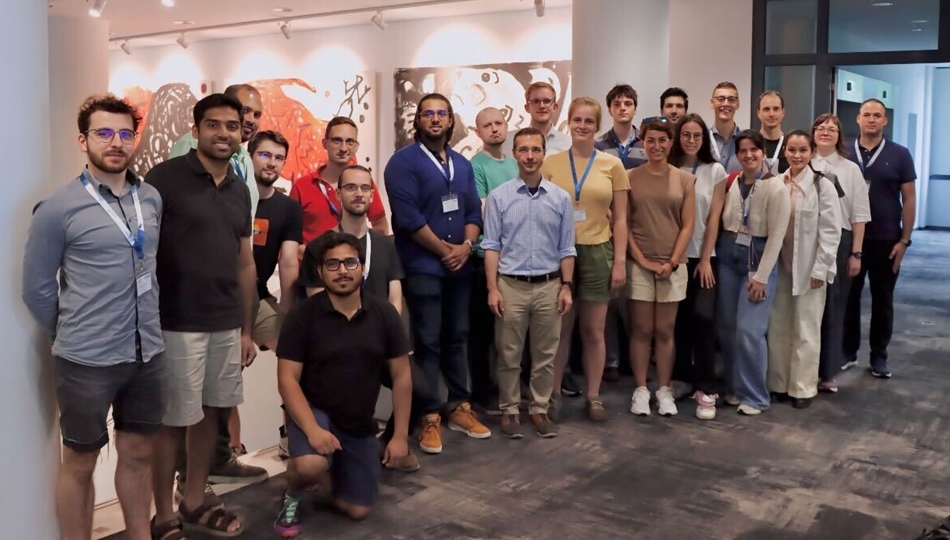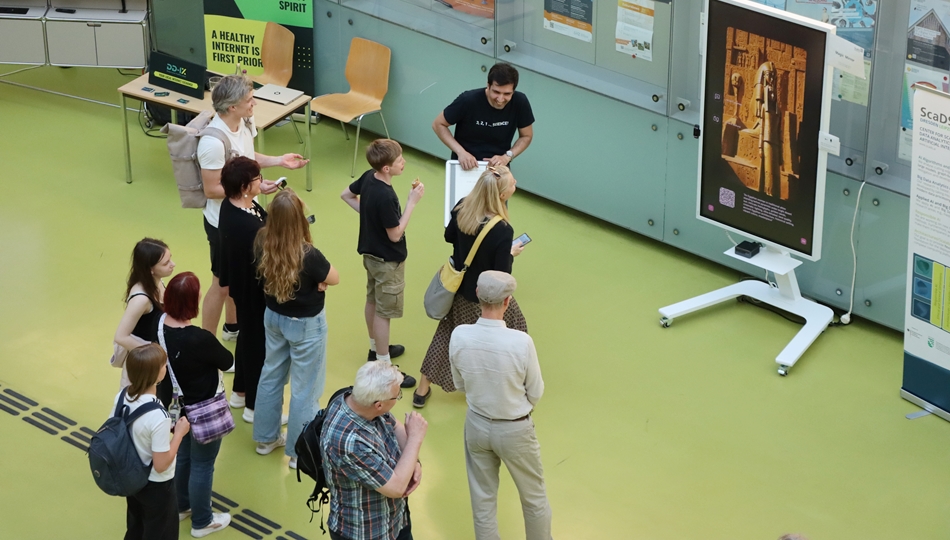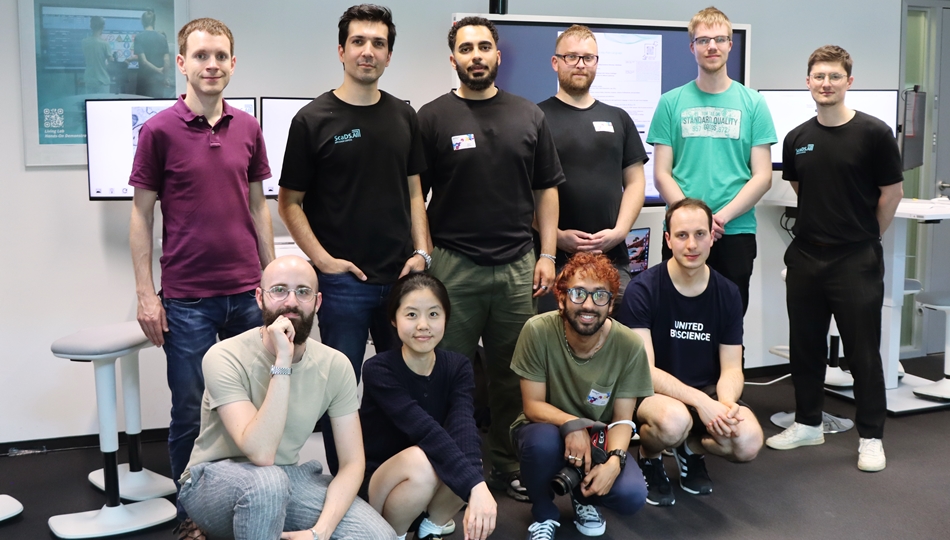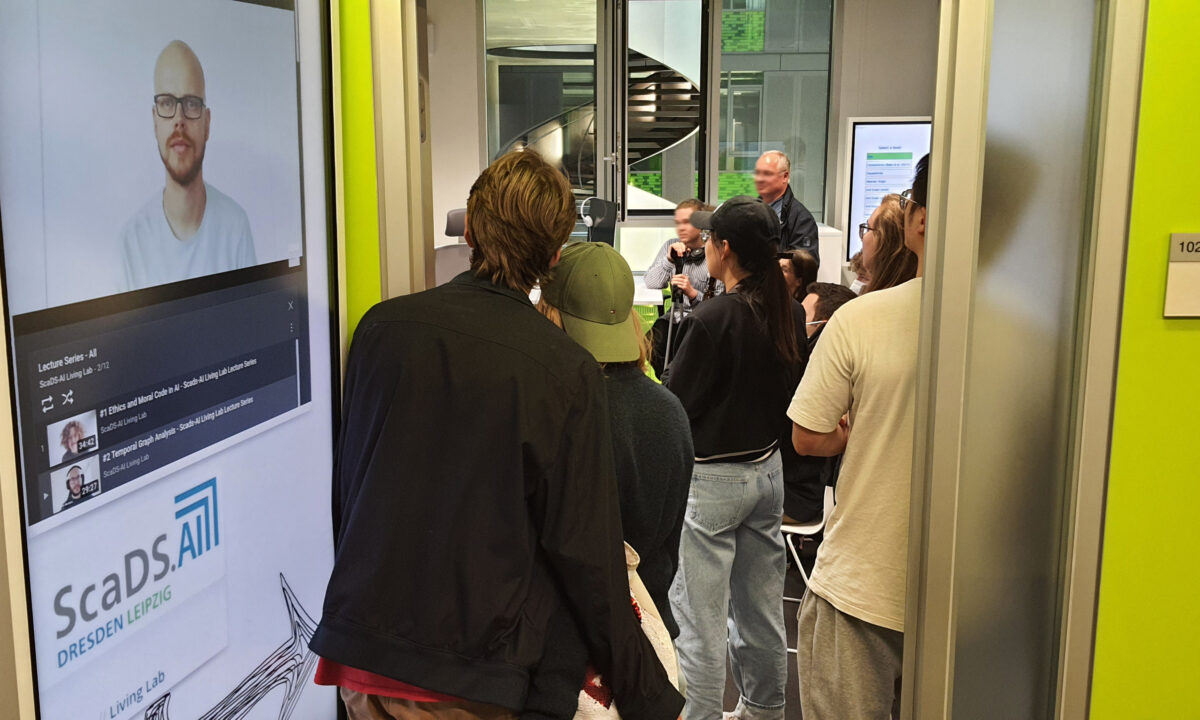
8. July 2022
Lange Nacht der Wissenschaften 2022 in Dresden

On July 8th, Lange Nacht der Wissenschaften – the long night of sciences – took place in Dresden. ScaDS.AI Dresden/Leipzig contributed to the event with talks, hands-on-sessions as well as an open Living Lab, in which interested visitors were able to get familiar with our research.
Lange Nacht der Wissenschaften 2022 at the Living Lab Dresden
At Lange Nacht der Wissenschaften 2022, our Living Lab in Dresden opened its doors for the public for the first time. Many interested visitors took the opportunity to visit the Living Lab in Dresden, talk to our scientists and find out more about the conducted research at our center. For that, the Living Lab is perfectly equipped. With our demonstrators, our research topics became graspable for our visitors. You can check them out yourself in the Living Lab.
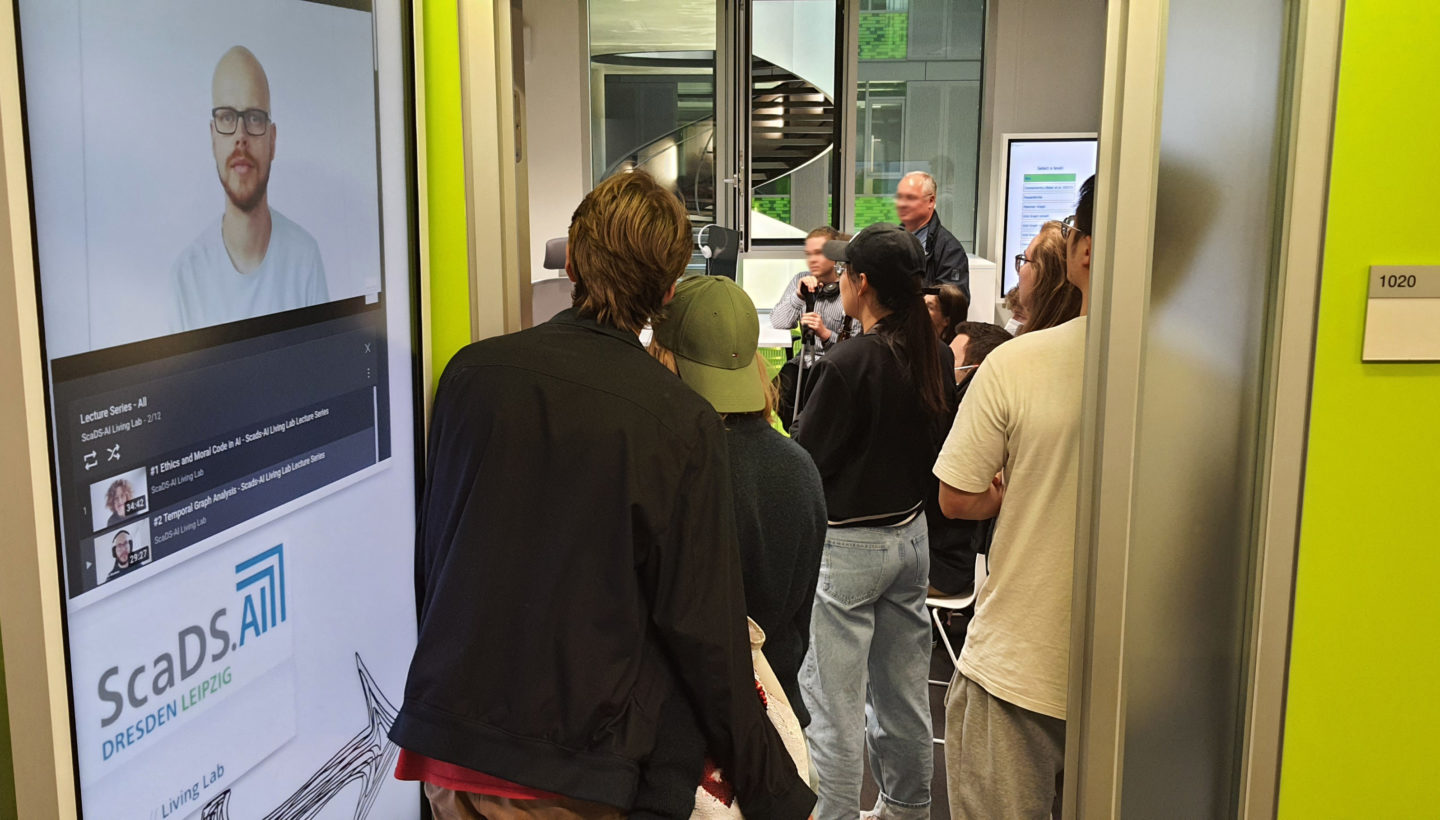
In a highly interesting hands-on-session, Norman Koch explained the functionality of the newest software available at our center: asanAI, which allows you to experiment with machine learning without any prior knowledge about how it works or any theory at all.
Our Living Lab team was more than happy to present their research to visitors of all age groups. We want to thank everyone for the engaging discussions and the interest regarding our work at ScaDS.AI Dresden/Leipzig. We can’t wait to welcome even more people at Lange Nacht der Wissenschaften 2023 in Dresden!
Talks by our researchers
Besides our Living Lab activities, many of our researchers at TU Dresden have given interesting talks at the event. Our center’s director, Prof. Dr. Wolfgang E. Nagel, talked about Digitization and its challenges for research, science and society. Furthermore, two of our principal investigators gave individual talks as well. Prof. Dr. Diana Göhringer explained embedded systems with the help of fascinating experiments. Prof. Dr.-Ing. Raimund Dachselt presented the topic Natural Human-Computer Interaction: Touches, Movements and Gestures.


